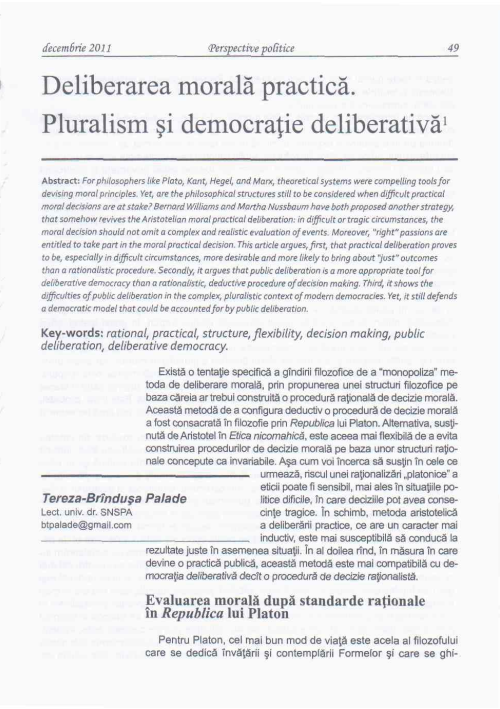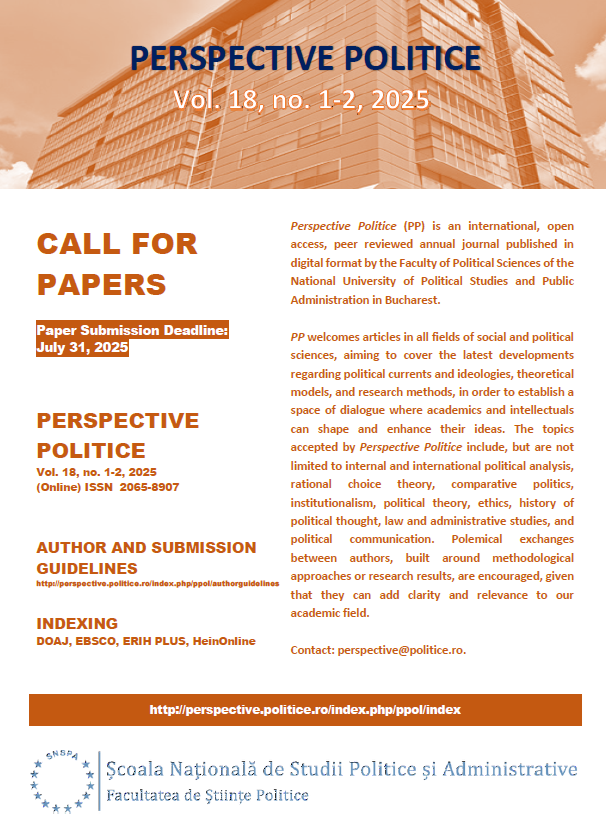Deliberarea morala practica. Pluralism si democratie deliberativa
Abstract
For philosophers like Plato, Kant, Hegel, and Marx, theoretical systems were compelling tools for devising moral principles. Yet, are the philosophical structures still to be considered when difficult practical moral decisions are at stake? Bernard Williams and Martha Nussbaum have both proposed another strategy, that somehow revives the Aristotelian moral practical deliberation: in difficult or tragic circumstances, the moral decision should not omit a complex and realistic evaluation of events. Moreover, "right" passions are entitled to take part in the moral practical decision. This article argues first, that practical deliberation proves to be, especially in difficult circumstance, more desirable and more likely to bring about 'just' outcomes than a rationalistic procedure. Secondly, it argues that public deliberation is a more appropriate tool for deliberative democracy than a rationalistic, deductive procedure of decision making. Third, it shows the difficulties of public deliberation in the complex, pluralistic context of modern democracies. Yet, it still defends a democratic model that could be accounted for by public deliberation.




